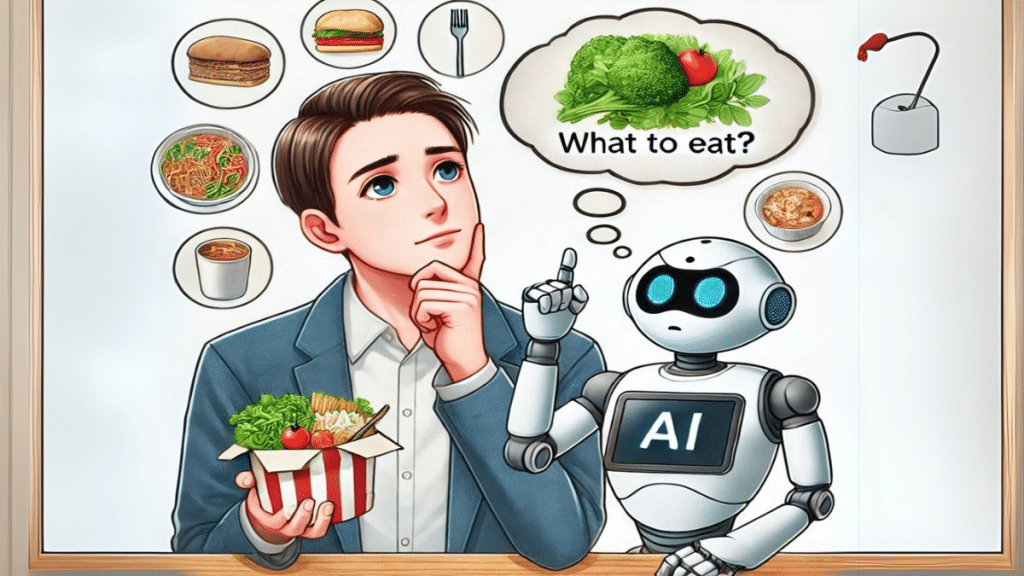Artificial intelligence is transforming the way the food industry anticipates and responds to consumer demands. By analyzing vast amounts of data, AI can identify emerging ingredients, forecast dietary preferences, and even predict shifts in dining habits. But how exactly is this technology shaping the future of what we eat?
In this article, we’ll take a closer look at the role of AI in predicting food trends and its impact on the food industry.
The Rise of AI in the Food Industry
AI’s role in the food industry has grown significantly in recent years, revolutionizing the way food trends are identified and acted upon. Through advanced data analysis, AI systems can process consumer behavior patterns, social media discussions, and even global market trends to highlight the next big culinary movements.
For instance, AI can detect a surge in interest around plant-based proteins or identify niche ingredients, such as adaptogens or exotic spices, before they gain widespread popularity. This ability to predict food trends allows manufacturers, retailers, and restaurants to stay ahead of the curve, adapting their offerings to meet evolving consumer expectations. AI is not just observing the market—it’s actively shaping the future of what appears on our plates.
The Role of Data in AI-driven Food Trend Predictions
Data is the backbone of AI technology, and nowhere is this more evident than in predicting food trends. With access to large volumes of information, from nutritional data to social media discussions, AI can identify patterns and correlations that humans may not be able to spot. By analyzing this data, AI can anticipate shifts in consumer preferences and behaviors with a high degree of accuracy.
Furthermore, as AI systems continue to learn and improve over time, their predictive capabilities become even stronger. This means that the more data they have access to, the more accurate their predictions will be. As a result, companies are investing heavily in collecting and organizing vast amounts of data to feed into their AI algorithms in order to stay ahead of the competition.
The Impact of AI on Food Industry Professionals
AI is transforming the way food industry professionals approach their work, providing them with tools to stay competitive in an evolving market. Top AI-gen companies like Tastewise are revolutionizing this space by offering once unattainable insights. These advanced platforms equip CPGs and restaurant chains with the data-driven insights they need to make informed decisions about product development, marketing campaigns, and menu offerings.
This technology also allows for more targeted and personalized marketing strategies. By analyzing consumer behavior and preferences, AI can help companies target specific demographics with tailored messaging. This not only increases the effectiveness of marketing efforts but also improves overall customer satisfaction.
5 Examples of AI Applications in the Food Industry
Menu Optimization
AI can analyze consumer preferences and purchasing data to help restaurants optimize their menus. By identifying which items are most popular and what combinations of dishes are frequently ordered together, AI can suggest changes to a menu that will increase sales and improve customer satisfaction.
Quality Control
In the food production process, AI-powered machines can detect and remove any contaminated or damaged products from the production line. This helps companies maintain consistency in product quality, reduce waste, and ensure food safety.
Supply Chain Management
AI can also be used to optimize supply chain management for food companies. By analyzing data on supplier performance, inventory levels, and demand patterns, AI systems can make more accurate predictions about future needs and assist in decision-making for sourcing and distribution.
Personalized Nutrition
Using AI, companies can create personalized nutrition plans for consumers based on their individual dietary needs and preferences. This technology takes into account factors such as health goals, food allergies, and taste preferences to provide customized meal suggestions.
Predictive Maintenance
AI-powered systems can analyze data from kitchen equipment to predict when maintenance is needed. This proactive approach not only increases the lifespan of expensive equipment but also reduces the risk of breakdowns during peak hours, leading to smoother operations and better customer experiences.
Overall, AI is transforming the food industry by providing valuable insights and innovative solutions that were previously unattainable. As technology continues to advance, we can expect even more exciting developments in the future that will further improve food production, distribution, and consumption.
